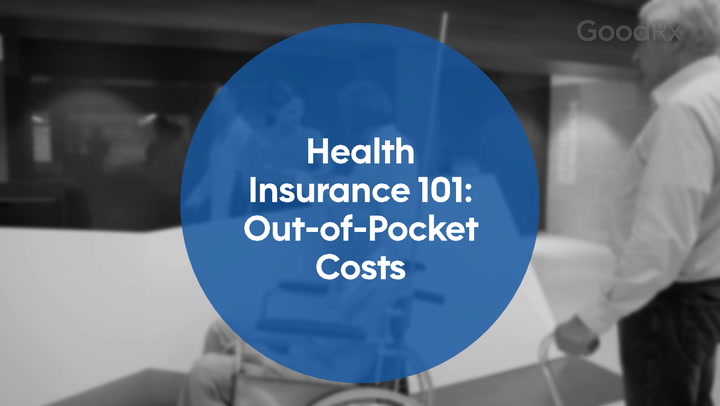
Are Dietitians and Nutritionists Covered by Insurance?
Key takeaways:
Many insurance plans cover preventive nutrition counseling by registered dietitians or licensed nutritionists.
Some health plans cover personalized nutrition services to manage certain medical conditions.
If your insurance doesn’t cover nutrition services, look into community health centers, university clinics, or online consultations.
Table of contents

A well-planned diet can be a powerful tool for better health. Having a personal chef would be nice, but the next best thing might be advice from a nutrition expert. Both nutritionists and registered dietitians can guide you toward healthier eating. But dietitians have more training. So they can create eating plans to treat medical conditions.
Many people might find expert nutrition help valuable. But they often wonder if their health insurance will cover the cost. In fact, many insurance plans offer some coverage for nutrition services, though the details vary quite a bit.
Are dietitians and nutritionists covered by insurance?
Many insurance companies cover nutrition counseling by a registered dietitian or a licensed nutritionist. The Affordable Care Act requires marketplace health plans and many others to cover preventive services. This includes nutrition counseling for adults at risk for chronic conditions. Preventive services are often provided without any out-of-pocket costs like copayments or coinsurance.
Search and compare options
But each plan has its own coverage rules. Some plans cover preventive nutrition counseling only if you’re at risk of developing certain health issues. This might include counseling for people who carry extra weight and have other risk factors for heart disease, such as high blood pressure.
Health plans may also cover medical nutrition therapy (MNT) for some conditions. These include diabetes and chronic kidney disease. MNT is different from preventive nutrition counseling. It uses nutrition to manage health problems and reduce the risk of complications.
Health plans may require a prescription or referral from a healthcare professional. They may also limit the number of nutrition visits allowed. For coverage to apply, a licensed nutritionist or a registered dietitian must typically provide the care.
Does Medicare cover a nutritionist?
Medicare Part B covers MNT if you meet one of the following criteria:
You have diabetes or chronic kidney disease.
You had a kidney transplant in the last 36 months.
To receive these services under Medicare, a healthcare professional must refer you. Additionally, a registered dietitian or a qualified nutrition professional must provide the care. If you’re eligible, you pay nothing for these services. You might be able to get nutrition advice through phone or video calls.
Should you eat more or less? Here’s how many times a day dietitians recommend you should eat.
Vegetables are an important part of a healthy and balanced diet. Try these tips to keep them fresh longer.
Tune in to your body’s hunger and fullness cues. Get started with these mindful eating tips.
Balanced diet. A dietitian explains what this really means.
MNT services covered under Medicare include:
An initial assessment of your diet and lifestyle
One-on-one or group nutrition therapy sessions
Help with managing how your daily habits affect your condition
Follow-up visits to track your progress
Does Medicare Advantage cover a nutritionist?
Medicare Advantage plans generally follow original Medicare coverage guidelines. They cover MNT for people with diabetes or kidney disease and those who’ve had a kidney transplant.
Read more like this
Explore these related articles, suggested for readers like you.
But Medicare Advantage plans may have different rules or additional benefits. For example, some plans might cover 3 hours of nutrition counseling during your first year of services. After that, they may cover 2 hours each year. If your health condition changes, you might be able to get more hours of treatment.
Does Medicaid cover a nutritionist?
Medicaid coverage for nutritionist services depends on where you live. Each state runs its own Medicaid program, so the rules aren’t the same everywhere.
In Oklahoma, for example, Medicaid covers 6 hours of nutritional counseling per year with a registered dietitian. Other states may have different rules about who qualifies, eligible conditions, and coverage.
Check with your local Medicaid office or your state’s Medicaid website to find out what’s covered.
How to check if your insurance covers dietitians
Here’s how to find out if your insurance covers dietitians or nutritionists:
Check plan documents. Do this by reviewing the health plan’s Summary of Benefits and Coverage document. This guide outlines what your plan covers. You can use the website’s search feature or look for a chat option to ask questions.
Call your insurance company. If you’re still in doubt, ask your insurer. They can tell you what’s covered and if you need a referral from a healthcare professional.
When asking about coverage, consider these questions:
Are dietitian or nutritionist visits covered?
Do I need a prescription from my primary care physician?
Is preventive nutrition counseling or medical nutrition therapy covered?
What health conditions qualify for coverage?
How many visits can I have each year?
What are my expected out-of-pocket costs?
Where can I get a list of in-network dietitians or nutritionists?
Ask your primary care provider. They often know about coverage for specialists, and may have experience with your insurance plan. They might even check your coverage benefits before your appointment.
Contact a benefits specialist at your workplace. If you have workplace insurance, contact your employer’s human resources department. They can provide details about your plan’s coverage or direct you to the right resources.
Keep detailed records. Document all conversations with your insurance provider. Note the date and the representative’s name, and save these records. This way, if any questions arise about your coverage, you’ll have documentation.
Ways to save on dietitians and nutritionists when they’re not covered
Affordable nutrition advice is still possible, even without insurance coverage. Here are 7 options to help you save money:
1. Contact community health centers
Many health centers offer nutrition services with fees based on your income. This might help if you’re on a tight budget. To find a health center, search online for “community health center” plus your city name. You can also check the Health Resources and Services Administration website, which has a directory.
2. Seek services at university clinics
Universities may offer low-cost nutrition counseling. These services often involve working with students who are supervised by licensed professionals. Contact the health sciences or nutrition departments at universities to ask.
3. Consider group sessions
Some dietitians offer group nutrition sessions. Group sessions are often more affordable than one-on-one appointments. Ask dietitians if they offer group classes. Some hospitals and community centers also host these sessions.
4. Look into online consultations
Nutrition services via telemedicine are often more cost-effective and convenient than in-person visits. The Academy of Nutrition and Dietetics website has a directory of registered dietitians. Some offer virtual consultations. Telehealth platforms, like Teladoc, can connect you with dietitians who provide online services.
5. Ask about workplace wellness programs
Check if your employer offers nutrition counseling as part of its wellness benefits. Some companies offer these services for free or at discounted rates.
6. Check with nonprofit organizations
Local nonprofits focused on specific health issues often provide nutrition education. Search for organizations related to conditions like diabetes or heart disease. You can also check with a local hospital for recommendations.
7. Use an FSA or HSA
If you have a health savings account (HSA) or a flexible spending account (FSA), you may be able to use these funds to see a dietitian. These accounts let you use pretax dollars for dietitian visits
It’s important to review the rules for your HSA or FSA before using your funds. Nutritional counseling is considered a qualified medical expense if it is recommended by a healthcare professional to treat a specific condition, such as diabetes. But you might need a letter of medical necessity from your healthcare professional.
The bottom line
Many insurance plans cover nutrition services, but coverage rules vary. Check with your health plan to verify what’s covered. If your insurance doesn’t cover dietitians or nutritionists, you can still get affordable advice. Look into community health centers, university clinics, and online consultations.
Why trust our experts?



References
Aetna. (2024). Nutritional counseling.
Blue Care Network of Michigan. (2023). Nutritional counseling.
Eat Right Pro. (n.d.). Medical nutrition therapy. Academy of Nutrition and Dietetics.
FSA Store. (n.d.). Dietitian: FSA eligibility.
HealthCare.gov. (n.d.). Preventive care benefits for adults. U.S. Centers for Medicare & Medicaid Services.
Humana. (2024). Humana Gold Plus Integrated member handbook.
Medicare.gov. (n.d.). Medical nutrition therapy services. U.S. Centers for Medicare & Medicaid Services.
Oklahoma Health Care Authority. (2023). Nutritional services benefit.





























